Central Mass ticks have one thing in common. They want to feed on your blood.
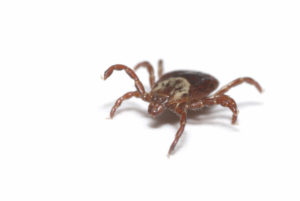 The main goal of all female ticks is to get their next blood meal, grow to adulthood, and reproduce. It’s their driving force. Both the American dog tick and deer tick are common in Central Mass. We know how they are the same. How do they differ?
The main goal of all female ticks is to get their next blood meal, grow to adulthood, and reproduce. It’s their driving force. Both the American dog tick and deer tick are common in Central Mass. We know how they are the same. How do they differ?
Central Mass tick: deer tick
Also known as the black-legged tick, this Central Mass tick is the main spreader of Lyme disease. Most Lyme cases result from the bite of a female nymph deer tick. It takes 36 to 48 hours for a deer tick to transmit Lyme disease. Nymph ticks are so small that they are often missed until they become engorged with blood. The biggest threat for a bite from a deer tick in Central Mass is springtime, summer, and fall. Though, ticks live in winter in Central Mass. According to the CDC, adult deer ticks could be out questing for their blood meal in temperatures above freezing. Deer ticks in Central Mass might also transmit Anaplasmosis, Powassan virus, and Babesiosis.
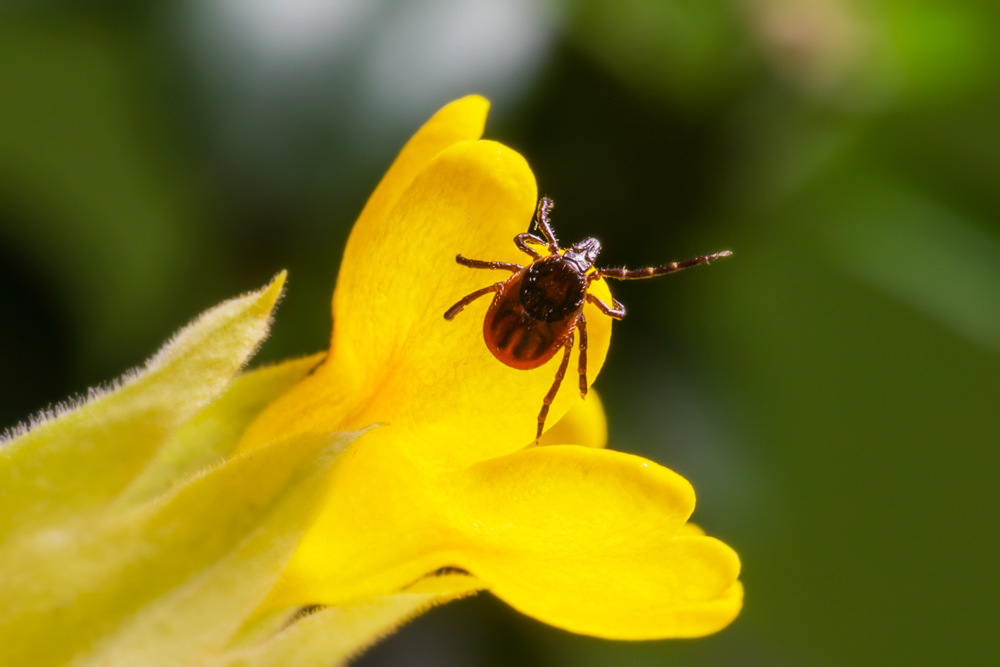
Central Mass tick: American dog tick
Another nasty tick common to Central Mass is the American dog tick, also known as the wood tick. This tick is not only common in our area, but is prevalent east of the Rocky Mountains. According to the CDC, the dog tick has limited populations on the Pacific coast. Adult females are the most likely to deliver a bite to their host, and they are responsible for some serious tick-borne illnesses. The American dog tick is the most common vector of Rocky Mountain spotted fever and Tularemia. Dog tick bites tend to be mostly in the spring and summer.
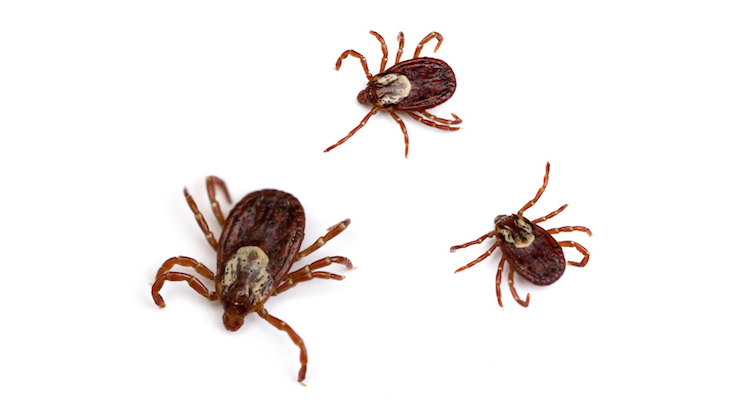
Now is the time for Central Mass tick control.
 Warm weather has arrived. We are spending more time outdoors. Central Mass ticks are on the prowl. They are hanging on low-lying vegetation in your backyards and your favorite outdoor areas, like playgrounds, hiking trails, and even the beach. You can help prevent tick-borne illnesses, like the ones above, by hiring a reputable Central Mass tick control company to spray all the areas around your home. Barrier tick sprays are available to keep your family safe at home, and should be professionally applied to your yard about ever three weeks throughout “tick season,” springtime, all the way through autumn. Don’t wait until you find a tick on yourself, a family member, or the family pet. An ounce of prevention is worth all the cure in the world! And let’s not forget, some tick diseases, like Lyme disease, cannot be cured.
Warm weather has arrived. We are spending more time outdoors. Central Mass ticks are on the prowl. They are hanging on low-lying vegetation in your backyards and your favorite outdoor areas, like playgrounds, hiking trails, and even the beach. You can help prevent tick-borne illnesses, like the ones above, by hiring a reputable Central Mass tick control company to spray all the areas around your home. Barrier tick sprays are available to keep your family safe at home, and should be professionally applied to your yard about ever three weeks throughout “tick season,” springtime, all the way through autumn. Don’t wait until you find a tick on yourself, a family member, or the family pet. An ounce of prevention is worth all the cure in the world! And let’s not forget, some tick diseases, like Lyme disease, cannot be cured.
Also read: What is the most common tick?

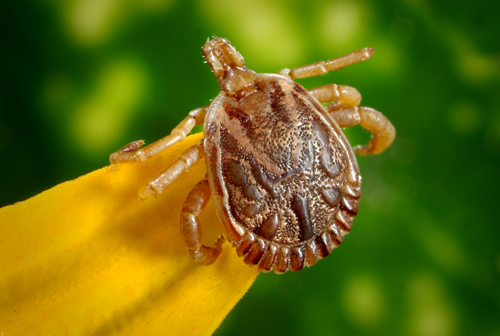
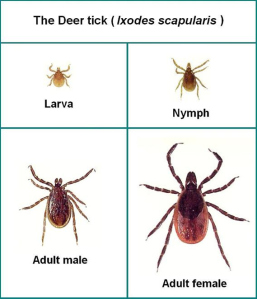 What do ticks look like?
What do ticks look like? How big are
How big are 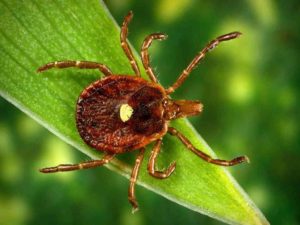 Ticks do not have wings. They do not fly or jump. Ticks quest by attaching themselves to plants or limbs. They hold on to leaves and grass with two sets of their legs, and outstretch their other legs awaiting a host to pass. If you are wondering how ticks cover so much territory, it is because they are transported by their hosts – animals and humans. The sheer number of ticks in Central Mass might make it seem like they are fast travelers. This is untrue without a host. Ticks are just – everywhere!
Ticks do not have wings. They do not fly or jump. Ticks quest by attaching themselves to plants or limbs. They hold on to leaves and grass with two sets of their legs, and outstretch their other legs awaiting a host to pass. If you are wondering how ticks cover so much territory, it is because they are transported by their hosts – animals and humans. The sheer number of ticks in Central Mass might make it seem like they are fast travelers. This is untrue without a host. Ticks are just – everywhere! No, they do not! Even in cold Central Mass winter temperatures, ticks are resourceful and will survive in nests of other animals or even underground. Ticks will lie dormant in winter, waiting for warm weather to return, so they can invade our favorite outdoor spaces.
No, they do not! Even in cold Central Mass winter temperatures, ticks are resourceful and will survive in nests of other animals or even underground. Ticks will lie dormant in winter, waiting for warm weather to return, so they can invade our favorite outdoor spaces. Can a tick bite kill you?
Can a tick bite kill you?